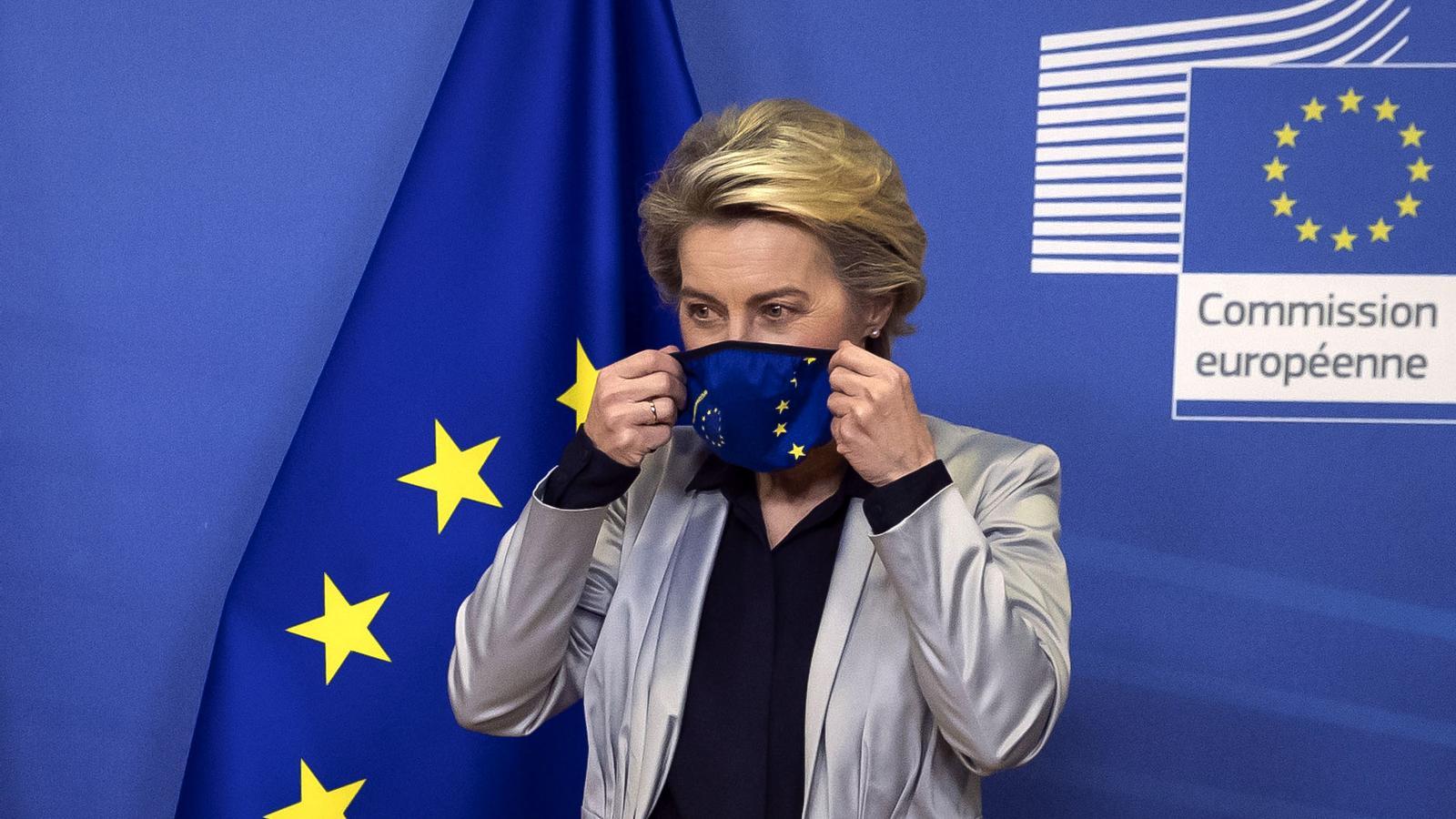Brussels in Pfizer's hands after obstacles with AstraZeneca and Janssen
Drugmaker will advance 50 million doses this second quarter and is already negotiating a third contract for 2022


BrusselsThe European Commission is throwing itself into Pfizer/BioNTech's hands. After problems with AstraZeneca and new complications with the Janssen vaccine, the President of the European Commission, Ursula von der Leyen, has announced that these delays are expected be compensated for with Pfizer vaccines, which will advance to this April the delivery of 50 million doses initially planned for the fourth quarter. Of these 50 million, five million are for Spain. It has also confirmed negotiations for a third contract with Pfizer/BioNTech Pharmaceuticals to secure up to 1.8 billion additional doses between 2022 and 2023.
"Pfizer is a reliable partner," said Von der Leyen, who appeared without giving the option for questions. "As we see with Tuesday's announcement from Johnson & Johnson, there are many factors that can still complicate our plans and we need to act quickly," she said.
The U.S. drugmaker that markets the vaccine developed by Germany's BioNTech is being able to fill the holes that others are leaving. The European Commission's announcement comes on the same day that the Italian newspaper La Stampa reported that the European Commission does not intend to renew contracts with AstraZeneca and Janssen in 2022 because it will prioritise vaccines with mRNA technology (such as those produced by Pfizer and Moderna, which so far have not raised any alarm bells). And, in fact, Von der Leyen has praised this technology: "We have to focus on technologies that work. Those of mRNA are an example, and that is why we are entering into negotiations with Pfizer for a third contract".
Consulted by this newspaper, European sources neither confirm nor deny it: "We are keeping all options open to be prepared for the next stages of the pandemic, for 2022 and beyond. Even so, we cannot comment on contractual issues". But the president has also left all options open: "After this contract, others may follow with other pharmaceutical companies," she concluded, after the announcement about Pfizer.
The United States decided to stop vaccination with Janssen on Tuesday because of six cases of thrombosis, which immediately caused the company to decide to halt the launch of its drug in Europe, where it began distributing just this week. The European Medicines Agency (EMA) is investigating the cases and, for the moment, does not advise against the use of the Janssen vaccine. In the case of AstraZeneca's vaccine, the European regulator concluded that thrombosis detected in Europe should be listed as a possible rare side effect, but insisted the drug is safe because the benefits outweigh the risks. In the case of AstraZeneca, the mess has led to a change in the vaccine's application criteria across the EU. As a result, Denmark definitively suspended its use.
All this makes for a bleak outlook for the European vaccination campaign, which has already started later than in other countries, such as the United Kingdom or the United States. This Wednesday Von der Leyen wanted to provide data for optimism. So far, she said, EU countries have received 126 million vaccines, of which 100 million have been administered. Of this total, a quarter are already second doses, which means that 27 million Europeans have received the full course of immunisation.
Even so, the European Union is still far from the figures of the world's major powers, and criticism of the Commission's management is not decreasing. Few voices dispute that opting for centralised purchasing has ensured that doses reach all EU countries, a milestone that would otherwise have been particularly complicated, especially for the smaller and poorer countries, with less negotiating power. Even so, there are cracks. Countries such as Hungary and Slovakia have already authorised and purchased the Russian vaccine Sputnik V and Germany also intends to do so if the EMA approves it.
